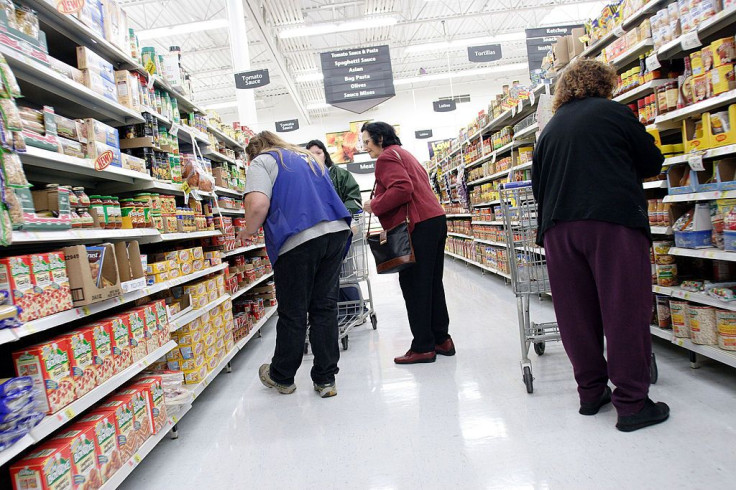Walmart Takes Its Private-Label Grocery Efforts To The Next Level

Last week, Walmart (NYSE:WMT) moved deeper into the beef wholesale business. A new 201,000-square-foot facility in Thomasville, Georgia, will distribute meat sourced nearby to 500 of its stores in the southeastern U.S. Although it will be operated by a third party, the operation itself is intended solely to meet Walmart's Angus beef needs.
It's outside the norm, to be sure. Familiar names like Tyson Foods and Cargill have historically supplied Walmart's meat, and those two names will continue to supply most of the company's U.S. stores. Such vertical supply integrations are quickly becoming the new norm, however, and retailers that can tackle such projects are better off for it.
More than a private-label initiative
Yes, it's part of a bigger private-label movement that retailers are increasingly embracing. The Kirkland brand of foods is Costco Wholesale's (NASDAQ:COST) best-selling brand, driving about one-fourth of its total revenue. The Simple Truth line of products was created by Kroger (NYSE:KR) for Kroger. The Good & Gather line found at Target stores is one of several house brands managed by that retailer.
There's a distinct difference between those private-label efforts and the one Walmart just added to its to-do list, though. Walmart has just beefed up control of its supply chain.
While more stores are wading into private-label waters, don't assume they're buying farms, acquiring textile mills, or operating injection-molding facilities to do so. They're largely outsourcing the production of custom-packaged goods to companies that already supply foods, clothing, or plastic goods to well-known name brands. Those relationships between manufacturers and retailers are getting stronger, mind you, with retailers now making special requests and manufacturers able to meet most of them. In the end, however, those consumer goods are still ultimately made and supplied by third parties.
That's somewhat the case for Walmart's new Angus-beef supply facility; the world's biggest retailer is still not in the cattle business. Rather, ranches like Texas' 44 Farms will supply the required cattle, which will be processed by Creekstone Farms before the beef is delivered to the distribution facility that will be operated by FPL Food.
It's still another step up the supply chain, however, that retailers themselves haven't historically taken.
Three clear upsides for Walmart
Walmart hasn't been shy about explaining its intent with the newly completed facility. Scott Neal, the company's senior vice president of meat, noted in April of last year: "As clean labels, traceability and transparency become more and more important to customers, we've made plans to enter into the beef industry creating an unmatched system that allows us to deliver consistent quality and value." Neal reiterated the message just a few days ago: "Our new Angus beef supply chain is a perfect example of Walmart's dedication to bringing customers high-quality food at a great price."
It's the usual self-cheering one would expect from a consumer-facing organization. But he's not wrong. The growing complexity of supply chains and the greater frequency of food-poisoning scares have increased consumers' need to know where their food comes from. While not Walmart employees, the supply-chain workers are employed by organizations that Walmart has cultivated close relationships with.
Even more meaningful than transparency is cost. By eliminating one of several intermediate levels -- the wholesale level in particular -- Walmart should dramatically reduce its costs. Though the exact numbers can vary from one product to the next, CB Insights estimates that a grocer's profit margin on nationally branded goods can be in the low single digits, while margin on self-sourced products can be as much as 25% to 30% higher.
Less apparent, though even more important, is the fact that Walmart can now customize its beef supply exactly how it wants it (cuts, quantity, packaging, and more), and take delivery exactly when it wants.
Not the first, and certainly not the last
It's an unusual initiative, but not as unheard-of as one might think. Costco spent more than $400 million on its own chicken farm in 2018 so it could continue offering rotisserie chickens at $4.99 apiece. Kroger bottles much of the milk sold in its stores. To that end, Walmart's move isn't exactly earth-shattering.
Nonetheless, the move is telling, indicating that Walmart and its rivals are now emboldened, and better-equipped to take on more complicated projects like a self-managed supply chain that ultimately will make them more competitive. If this initiative works well -- and there's no reason to think it won't -- look for an expansion of it beyond beef.
This article originally appeared in the Motley Fool.
James Brumley has no position in any of the stocks mentioned. The Motley Fool recommends Costco Wholesale. The Motley Fool has a disclosure policy.





















